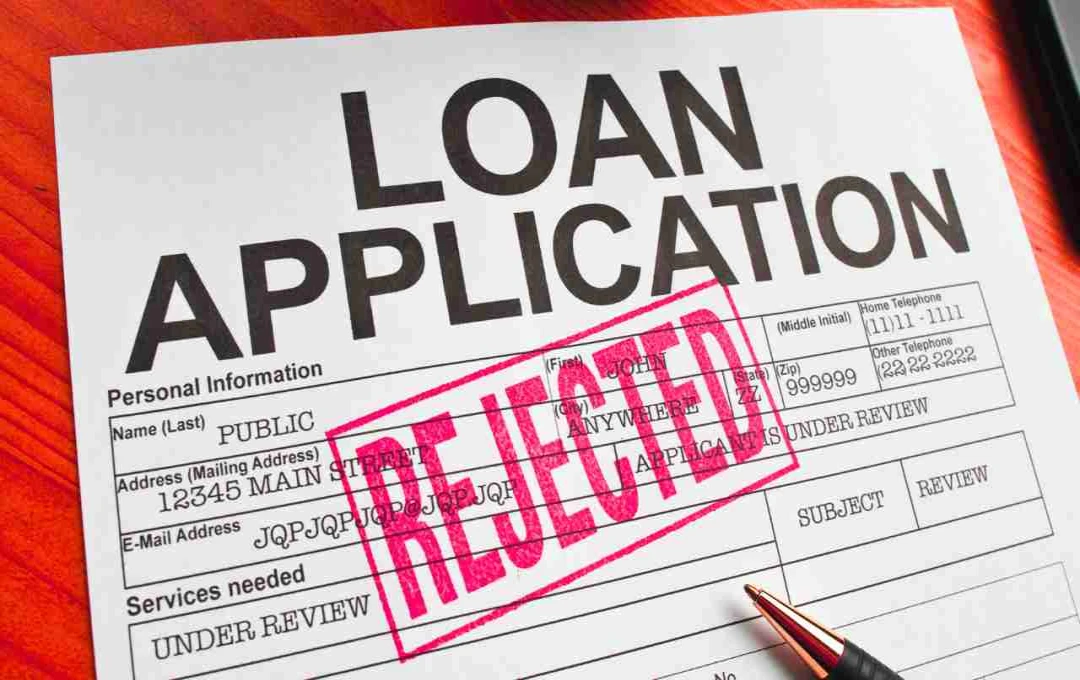Sometimes, personal loans get rejected due to minor mistakes. Before approving a loan, banks check the applicant's credit score, job stability, age, and existing debt situation. If these factors are taken into consideration, the loan can be easily approved, and it won't negatively impact the credit score either.
Personal loan rejection: Personal loans are often rejected due to reasons such as credit score or income stability. Before sanctioning a loan, banks scrutinize the applicant's employment, age, and current EMI status. A credit score above 750, regular income, low debt, and permanent employment in a reputable company significantly increase the chances of loan approval. By keeping these points in mind, the difficulties in obtaining loan approval can be reduced.
Pay special attention to your credit score
The credit score plays the first and most crucial role in getting a personal loan approved. Banks or financial institutions first check your credit score. If your score is 750 or higher, your chances of loan approval increase significantly. Conversely, if it's below 700, banks perceive you as a risk. Often, people apply for a loan directly without checking their score, leading to their application being rejected. Therefore, it's advisable to check your credit score before applying for a loan and focus on improving it if necessary.
To improve your credit score, it's essential to pay your old EMIs and credit card bills on time. Any default history can bring your score down. Furthermore, applying for loans repeatedly at different places also negatively impacts your credit report.
Job and Income are essential
A personal loan is granted without any collateral. For this reason, it's crucial for banks or loan companies to verify whether the customer's income is stable. If you have been working with a company for a long time and your income is regular, the bank feels confident that you will be able to repay the loan installments on time.
Banks give lower priority to individuals who frequently change jobs or have irregular incomes. Especially for those in private jobs, it is important to keep their salary slips, bank statements, and IT returns ready to avoid any issues during application. If you are in a government job or have been working for a b company for a long time, your chances of loan approval increase further.
Age also has an impact
Before approving a loan, banks also consider your age. Typically, applicants between 21 and 60 years of age can easily obtain a personal loan. Banks prioritize this age group because they tend to have a stable source of income and sufficient time to repay the loan.
If the applicant is very young or close to retirement, the bank perceives a higher risk. In such cases, the bank either rejects the loan or offers a very small amount. Therefore, when applying for a personal loan, ensure that your age falls within the bank's specified criteria.
Keep EMI and existing debt in mind

People often make the mistake of taking a new personal loan while EMIs for existing loans are still ongoing. When a bank scrutinizes a loan application, it assesses your EMI-to-income ratio. If 40 to 50 percent of your monthly income is already allocated to EMIs, the bank believes you won't be able to manage new debt. In such cases, your application might be rejected.
Another criterion for banks is that a portion of your income should remain as savings to avoid difficulty in repaying the loan during an emergency. Therefore, before taking out a loan, try to reduce or repay old debts on time. This increases your loan eligibility and creates a positive impression on the bank.
Working for a reputable and stable company also works in your favor. Banks assume that individuals employed by such companies have stable incomes, which reduces the risk of loan default.
Documents and accurate information are essential
Sometimes, incomplete or incorrect documents are also a reason for loan rejection. If there's any error in your PAN card, Aadhaar card, salary slip, or bank statement during the application process, the bank will immediately reject the application. Therefore, keep all documents ready in advance and ensure that the information provided is completely accurate.
To gain the bank's trust, it's crucial to maintain a clean financial profile. A good credit history, stable employment, and regular EMI payments can help your personal loan get approved easily.















